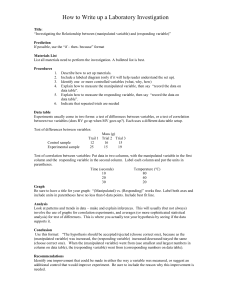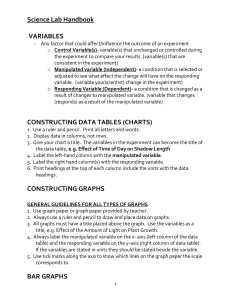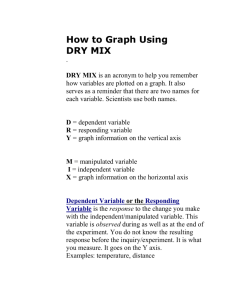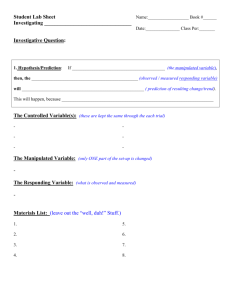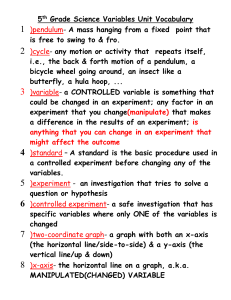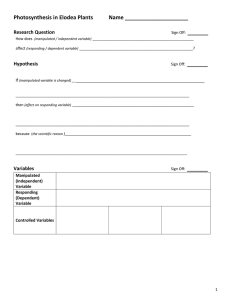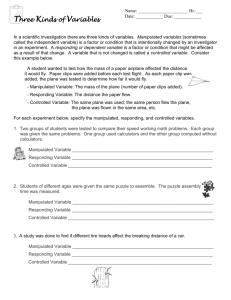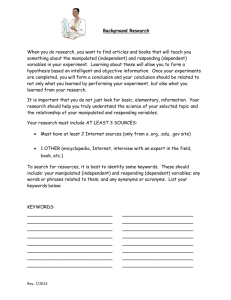How to Make a Data Table: Science Experiment Guide
advertisement
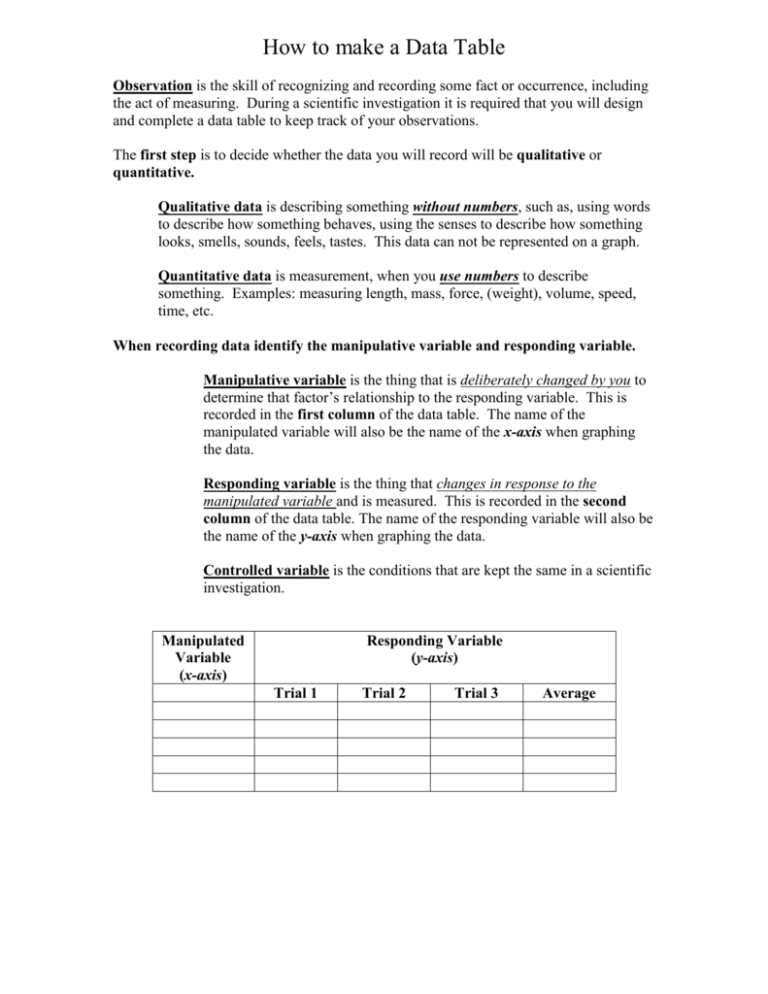
How to make a Data Table Observation is the skill of recognizing and recording some fact or occurrence, including the act of measuring. During a scientific investigation it is required that you will design and complete a data table to keep track of your observations. The first step is to decide whether the data you will record will be qualitative or quantitative. Qualitative data is describing something without numbers, such as, using words to describe how something behaves, using the senses to describe how something looks, smells, sounds, feels, tastes. This data can not be represented on a graph. Quantitative data is measurement, when you use numbers to describe something. Examples: measuring length, mass, force, (weight), volume, speed, time, etc. When recording data identify the manipulative variable and responding variable. Manipulative variable is the thing that is deliberately changed by you to determine that factor’s relationship to the responding variable. This is recorded in the first column of the data table. The name of the manipulated variable will also be the name of the x-axis when graphing the data. Responding variable is the thing that changes in response to the manipulated variable and is measured. This is recorded in the second column of the data table. The name of the responding variable will also be the name of the y-axis when graphing the data. Controlled variable is the conditions that are kept the same in a scientific investigation. Manipulated Variable (x-axis) Responding Variable (y-axis) Trial 1 Trial 2 Trial 3 Average Scoring Rubric for Data Tables Attribute 1. Manipulated variable is located in the first column of the data table (left side) 2. Responding variable is located to the right of the manipulated variable. 3. There are at least three trials represented on the data table for each manipulated variable tested. 4. Column represent the average of the three trials Point Value

